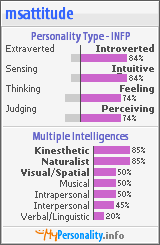Watch weight to cut cancer risk: study
People should aim to be as lean as possible without becoming underweight if they want to cut their risk of cancer, a major international study said.
In what it claims is the largest ever investigation into lifestyle and cancer, the World Cancer Research Fund says body fat and obesity are more closely linked to the disease than previously thought.
The study recommends avoiding adult weight gain, steering clear of sugary drinks and alcohol, not eating processed meats like bacon or ham and limiting red meat consumption to cut the risk of cancer.
Report project director Martin Wiseman said the advice was the best possible based on all the scientific research completed to date.
"This report is a real milestone in the fight against cancer because its recommendations represent the most definitive advice on preventing cancer that has ever been available anywhere in the world," Professor Wiseman said.
"These recommendations are not based on one study but are based on 7,000."
A panel analysed 7,000 cancer studies from around the world dating back to the 1960s.
Sir Michael Marmot, who chaired the panel, said people should aim to be as lean as possible within the healthy range.
"This might sound difficult, but this is what the science is telling us more clearly than ever before," he said.
"The fact is that putting on weight can increase your cancer risk, even if you are still within the healthy range.
"So the best advice for cancer prevention is to avoid weight gain, and if you are already overweight then you should aim to lose weight."
People with a Body Mass Index (BMI), a calculation which takes into account height and weight, of between 18.5 and 25, are deemed to be within a healthy weight range.
The study says their risk increases as they head towards the 25 mark, however, and recommends people try to be as close to the lower end as possible.
Two-thirds of cancer cases are not thought to be related to lifestyle.
But the report said there was "convincing" evidence that body fat played a key role in the development of cancers of the colon and breast - some of the most common forms of the disease.
The report also links the kind of food consumed to cancers, especially colorectal ones.
In particular, researchers say people should stop eating processed meats and limit the consumption of red meat to 500g a week.
They also say alcohol should be avoided to cut the risk of cancer, but accept that drinking small amounts could help protect against other diseases.
No more than two drinks a day for a man, and no more than one for a woman were suggested.
Sugary drinks should be avoided because they promote weight gain, and fruit juice consumption should also be reduced, according to the study.
The report also urges breastfeeding to protect against cancer, arguing it may reduce breast cancer in the mother and prevent obesity in the child, although this has not been proven.
Source: AAP
Wednesday, October 31, 2007
Subscribe to:
Post Comments (Atom)


No comments:
Post a Comment